#ConsumerReports
How Responsible Are EVs for Maintaining Our Automotive Infrastructure?
With electric-vehicle owners eligible for sizable tax breaks, and ineligible for federal fuel taxes, it often feels like they’re not pulling their weight when it comes to maintaining this great nation’s transportation infrastructure. However, feelings are sometimes wrong — when it feels like an Arby’s night, for example.
There are actually 26 states that presently impose fees upon EV owners and, according to Consumer Reports, 11 charge more than the amount drivers of similar, gas-powered cars pay in gas taxes, with 3 charging more than twice the average amount. Another dozen states are considering adding fees, with CR’s own research stipulating that 10 would require electrics to pay more than they would if they were powered by gasoline.
Gas War: Efficiency Rollback Would Raise Fuel Costs, Study Claims
The fuel economy rollback posited by the Trump administration remains a hotly debated issue within the automotive community. Unfortunately, it has become mired in political nonsense, making decrypting the real-world impact of embracing or shunning it rather difficult. Consumer Reports recently took a stab at making sense of the matter, coming out in favor of balking at the notion of a rollback on the grounds that it would ultimately raise fueling costs.
Last year, the administration proposed capping fuel economy and emission standards at 2020 levels, instead of allowing them to rise annually as under existing regulations. The opposition, fronted by California, is vying to maintain the existing standards — with the possible compromise of delaying them by one year.
Survey Suggests Most Motorists Dig Advanced Driving Aids
A survey released by Consumer Reports this week indicated that a majority of motorists (57 percent) believed that the advanced driving aids their vehicles had actively helped them avoid a crash. The survey, which incorporated data on roughly 72,000 vehicles from the 2015-19 model years, asked drivers to weigh in on a multitude of safety systems — including forward collision warning, automatic emergency braking, blind spot alerts, and more. While not all of these features had majority support, tabulating them as a whole showed at least half of the people using advanced driver assistance systems (ADAS) saw some value in them.
Our opinions on these systems have been thoroughly mixed. While we’ve found most advanced driving aids to be inconsistent in their operation, sometimes befuddled by fog or a vehicle encrusted with roadway grime, we’ll happily admit that adaptive cruise control offers more utility than the standard on/off inclusions of yesteryear. But we’ve also seen disheartening reports that semi-autonomous features dull a good driver’s senses to a point that effectively makes them a worse motorist and would be lying if we said we trusted any of these systems implicitly.
Consumer Reports Is All Out of Love for the Tesla Model 3
Less than a year after bestowing a coveted “Recommended” label on Tesla’s Model 3, Consumer Reports is taking is back. You can just imagine the outrage in the online Teslaverse.
Consumer Reports’ secret ownership by shadowy oil execs and General Motors notwithstanding (this is clearly false, don’t sue us), the retraction of what amounts to a “buy this, you probably won’t be sorry” label is a blow to the automaker, and CR claims it’s all Tesla’s fault.
At least Tesla can say it isn’t alone in the recommendation withdrawal camp.
Americans Suffer in Consumer Reports' 2018 Brand Reliability Rankings
Consumer Reports has released its reliability rankings for automotive brands. The results, based on responses from half million of its readers, are about what you’d expect, with a few exceptions. Normally, reliability rankings don’t change all that much per annum. However, this year’s tally saw some surprising slippage from domestic brands that had performed rather well over the past few years.
The biggest loser was Buick, which fell 11 spots in 2018. CR attributed it to lackluster performance from the redesigned Enclave. Owners cited repeated issues with its new nine-speed transmission and claimed the rest of the brand’s fleet was middling at best. Buick now occupies 19th place, or slightly below average. On the flip side of things, Mazda shot up 9 spots to occupy a comfy position in 3rd place overall. While minor HVAC issues continue to plight the CX-3, the outlet suggested that the rest of its lineup has gotten its act together.
Hands Off: Cadillac's Super Cruise Beats Tesla's Autopilot in First Consumer Reports Ranking
Now that new car buyers have a decent selection of semi-autonomous driving systems to choose from, Consumer Reports felt it would be a good idea to put them to the test.
Expect to see much consternation expressed on Tesla forums. The rankings, which pitted Cadillac’s Super Cruise against Tesla’s groundbreaking Autopilot, Nissan’s ProPilot Assist, and Volvo’s Pilot Assist, shows GM’s luxury marque in the lead.
What propelled Cadillac’s system to the top of the heap? The same element that gave Tesla’s system a black eye two years ago: safety.
Consumer Reports About-face Brings 'Recommended' Label to Tesla's Model 3
The Consumer Reports review that criticized the Tesla Model 3’s stopping distance and all-consuming touchscreen seems to have sparked CEO Elon Musk’s recent spat with the media, but a change of heart at CR might cause Musk to think twice about his proposed rating site for journalists.
After the automaker improved the model’s 60-0 mph stopping distance by nearly 20 feet (a feat accomplished via an over-the-air software update), the publication bestowed the car with a “recommended” rating, despite lingering concerns over certain features. Maybe the torches-and-pitchforks crowd can clear off CR‘s lawn now.
Them's the Brakes: Musk Promises 'Further Refinement' of Model 3's Binders
If you weren’t on Twitter yesterday, well, you picked a good day to stay away. However, if public battles between an automaker and the media is your thing, coupled with exasperating (and disturbing) displays of tribalism from the manufacturer’s fan base, Monday was a gold mine.
The social media brouhaha was a result of Consumer Reports‘ less-than-glowing review of the Tesla Model 3, which was found to have the worst braking performance of any contemporary car in the publication’s testing catalog. As Tesla disciples circled the wagon (one created a list of “bad journalists”), Tesla CEO Elon Musk responded to CR‘s findings.
Pump the Brakes: Consumer Reports Dings Model 3 For Lackluster Stops
“Lackluster” may be an understatement. In its test of the Tesla Model 3 Long Range model, Consumer Reports discovered plenty of things to like about the California automaker’s smallest electric vehicle, but two large gripes kept the publication from bestowing a coveted “recommended” tag on the sedan.
We’ve complained before — and online videos have aptly demonstrated — about how the Model 3’s massive center screen diverts too much attention away from the road by consolidating simple tasks (like adjusting the dash vents) into the menus and submenus of the vehicle’s interface, and CR‘s opinion was no different. However, the largest issue seen while driving the Model 3 was its lengthy average stopping distance.
The publication went so far as to borrow a privately owned model just to make sure its observations were legit.
QOTD: Do You Care About Automotive Awards?
Glossy magazines present multi-page spreads on their winners. Poorly funded websites present annual lists of their favorites. Other organizations that rate all sorts of consumer products give out actual, physical plaques and trophies to their winners.
Yes, we’re talking about automotive awards today. Everybody’s doing it, and with a bit of searching, one might even find a particular grouping of awards which suits their particular special interest.
But do you care?
Consumer Reports and Tesla Feud Continues Over Model 3
Tesla Motors and Consumer Reports have enjoyed a fairly contentious relationship with each other over the last few years. The nonprofit consumer advocacy organization had previously slighted the Model S for being unreliable and unsafe, but upgraded that analysis as Tesla continued improving the model. In this year’s consumer survey, the model received higher marks —receiving “above-average reliability for the first time ever.”
However, the Model X suffered a dismal showing and Tesla was outraged that CR gave the Model 3 a predictive average reliability score without even having driven it. The publication was quick to respond, however, and suggested the manufacturer may have misunderstood what was a fairly positive rating for an unproven platform.
While the exchanges seem somewhat trivial and maybe a little petty, this is the kind of automotive drama that’s simply too fun to ignore. For whatever reason, Tesla seems unwilling to remain silent whenever some bad publicity heads its way. While it’s far from the only automaker to do this, its relationship with Consumer Reports has been filled with very specific ups and downs.
Which Brands Fared Best in 2017's Consumer Reports' Reliability Survey?
Consumer advice is one way informed shoppers like to make a decision, and few buying choices are bigger than your next car. Every year, Consumer Reports surveys its subscribers to see how they’re getting on with their personal vehicles. While the metrics may have changed over the years, its annual reliability report is one people and automakers pay particularly close attention to.
However, this year, some automakers were paying closer attention than others. Tesla, irritated that CR was so hard on the Model X — while predicting the Model 3 would possess “average reliability” — fired back at the publication with a press release calling shenanigans. “Time and time again, our own data shows that Consumer Reports‘ automotive reporting is consistently inaccurate and misleading to consumers,” the automaker wrote in a release.
While Consumer Reports exists as a nonprofit organization providing consumer advice, Tesla has accused it of making the electric automotive brand a target to bolster attention. Whether or not that’s true is debatable, but it did use predictive reasoning to assess the Model 3’s probable reliability — rather than data collected from testing and customer surveys.
Consumers Union Wants Heavy-duty Truck Buyers to Know Their Vehicle's Fuel Economy
Say you’re on the Ram website, perusing a new 2500 heavy-duty pickup. On the specifications page, you scroll down to the fuel efficiency table to see how many Andrew Jacksons you’ll be forking over at the pumps. The verdict? The Ram 2500 has a 32-gallon fuel tank. Thank you for visiting.
Unlike passenger cars and light duty trucks, heavy-duty trucks with a gross vehicle weight above 8,500 pounds aren’t required to flash fuel economy data on a window sticker. Searching the fueleconomy.gov database turns up nothing in the way of information. Now, Consumers Union wants Congress to change that. The consumer advocacy group is calling on the federal government to place fuel economy information on window stickers for the benefit of large truck buyers.
As it awaits a response, the group’s Consumer Reports publication went ahead and tested some heavy-duty pickups.
No Fixed Abode: All The Unreliable Ways In Which We Talk About Reliability
How did you celebrate Warren Brown Day? What? You didn’t know about Warren Brown Day? Well, my friend, allow me to fill you in. If you are a subject of the Washington, DC metro area, then June 15th was officially Warren Brown Day for you. The day celebrates Warren Brown’s contributions to automotive journalism. This came as a great surprise to me; as far as I knew, Mr. Brown’s primary contribution to automotive journalism was finding a way to get around the Washington Post‘s policy on accepting luxury travel.
It occurred to me that maybe the city was honoring a different Warren Brown, so I went back and checked the original article in American Journalism Review to make sure that I had the right guy. Once I started re-reading it, however, I quickly forgot all about Mr. Brown and his Italian vacation, because the most important story Frank Greves tells in his overview of automotive journalism has nothing whatsoever to do with the perks of the business.
Consumer Reports Restores Half of Tesla's Missing Points After Braking Update
Tesla Motors has won back some of Consumer Reports’ respect after being criticised for failing to include automatic emergency braking in recently built vehicles. The absence of the safety system really irked CR, resulting in a points deduction on all of the brand’s existing models. Tesla said it was abnormal to see vehicles of the same generation missing preexisting safety features and docked the Model S and X two points apiece.
“When we purchased our latest test car, we were assured automatic emergency braking would be enabled by the end of 2016,” explained Jake Fisher, director of Consumer Reports’ Auto Test Center. “We’ve been waiting for this important safety feature, which is standard equipment on much cheaper cars.”



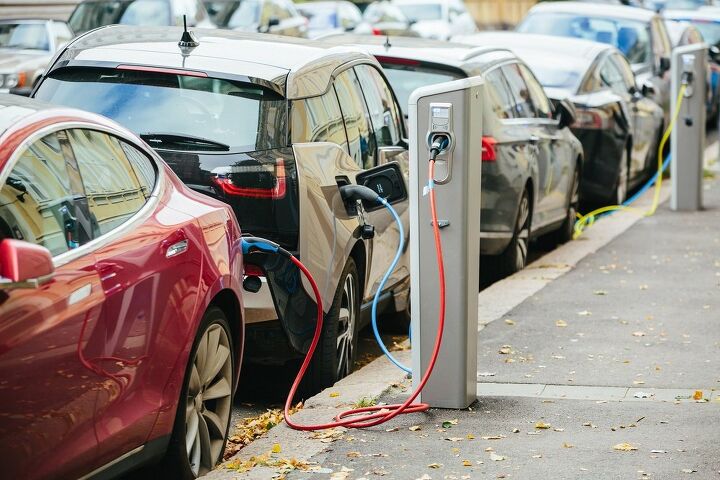



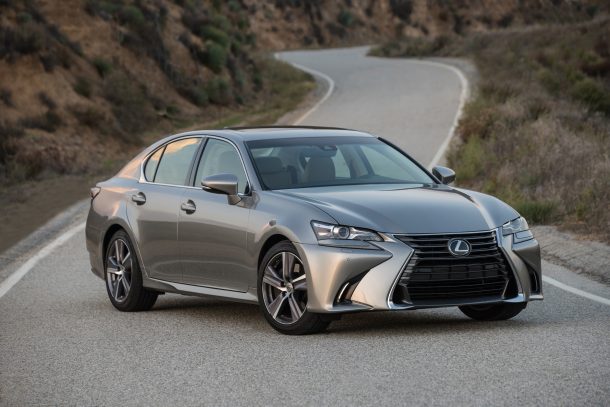
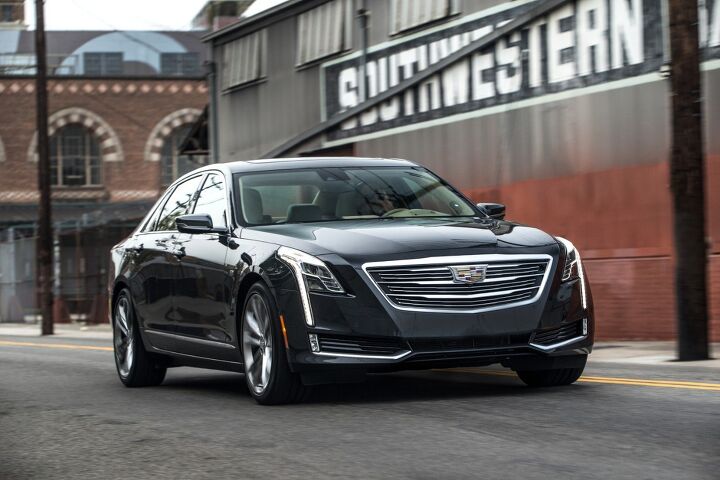
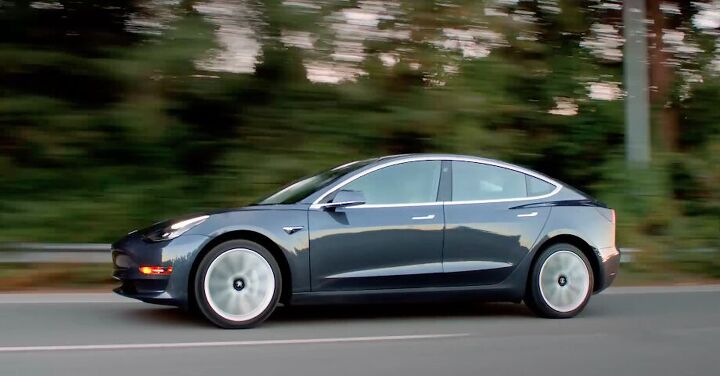


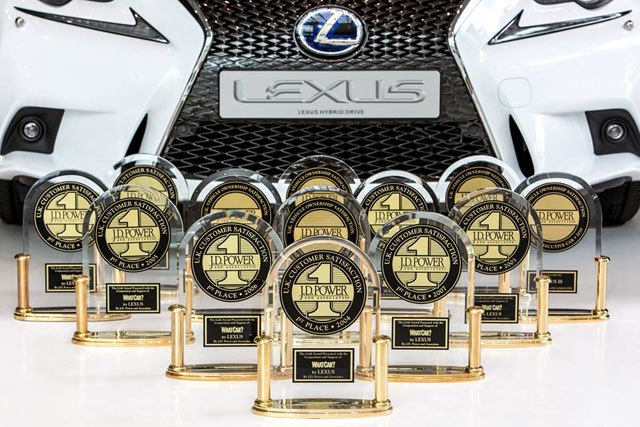
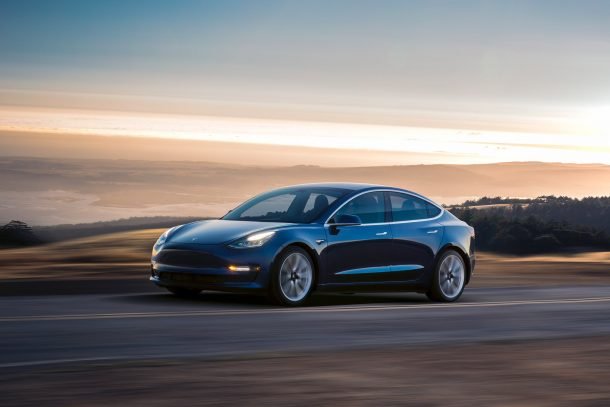

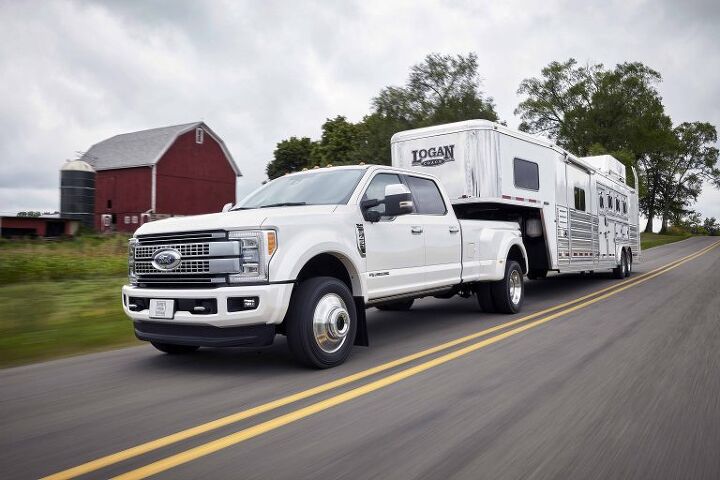

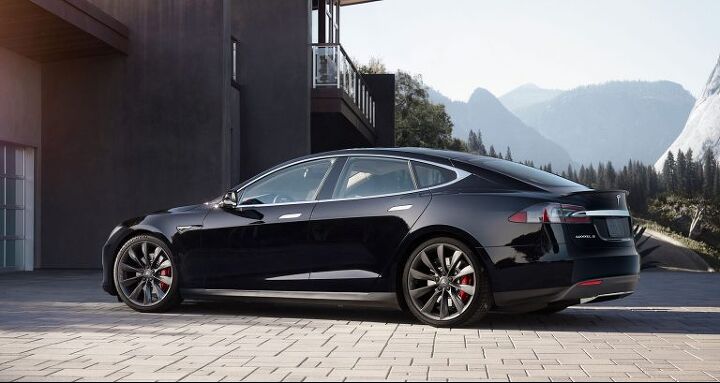












Recent Comments